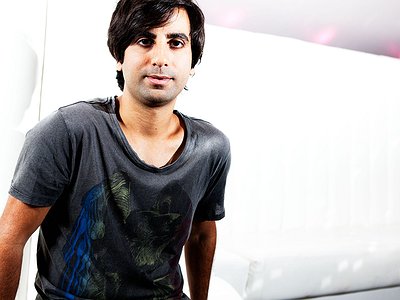Part 2
How would you describe your approach to building a set? What are some of the characteristics that define who you are as a DJ?
I want people to remember the music played on the night. When I used to go out to hear DJs I came home and was looking for some tracks and that were stuck in my mind. I try to provide for the same experience.
It has today almost become customary to radically change pieces in the act of mixing and to increase the creative input of the DJ even to the level of the actual composition. What's your take on that and in how much do you make use of these possibilities yourself? Is there such a thing as 'disrespectful mixing'?
I used to play in Ableton and now in Traktor. In both softwares I try to loop a lot and have some kind of flow in the set. Today there are so many things you can do, I simply do what is best for me. Again, in the world of DJing its all about the music. I don’t really pay attention on what tools other DJs play with and use. If the music is good, then that’s what really counts.
What are some of the considerations that go into deciding which track to play next - are these purely subjective to you or are there objective things that work or don't work?
For me the order of tracks is important, some tracks belong to different parts of the set or to the time you play. I pay attention to that but also leave room to change my set and play different if or when I want to.
How do you see the balance between giving the crowd what they want and treating them to something new? What's your take on the idea of the DJ as an "educator" and is the relationship with the dancers a collaborative one or, as Derrick May once put it, a “battle”?
I know one thing: When I get booked into a club I come and give 100% of myself. I’m not a pop or commercial music DJ, so I believe that people who come to hear me, they know the genre and kind of music I play. But they come open-minded. It depends on which direction you want to take your career. I definitely want to keep it that way, it’s more pure.
It is customary for many DJs to also produce tracks of their own, thereby lifting the former 'division of labor' between the two. How does your work as a DJ influence your studio productions and vice versa?
DJing has a lot of influence on my production. Some tracks are made more for dance floor and some are more for listening, DJing helps me to create the right buildup for a track.
With more and more musicians creating than ever and more and more of these creations being released, what does this mean for you as an artist in terms of originality? What are some of the areas where you currently see the greatest potential for originality and who are some of the artists and communities that you find inspiring in this regard?
I think a lot of non-original music being released, it doesn’t affect me because to be honest I don’t have much time to check other tracks besides those that are being sent to me by friends. It is hard to keep up, there is so much music being released which is not creative. I’m lucky to know great producers that make beautiful music.
Reaching audiences usually involves reaching out to the press and possibly working with a PR company. What's your perspective on the promo system? In which way do music journalism and PR companies change the way music is perceived by the public?
Today everything is around PR and networking. We live in different times now and it is important all the time to deliver good material for the community to talk about. The good thing is that you can be exposed to a bigger crowd. The bad thing is that a lot of people getting attention for things they don’t do.
It is remarkable, in a way, that DJing has remained relevant for such a long time. Do you nonetheless have a vision of DJing, an idea of what it could be beyond its current form?
To be honest, I see my self more as producer who play his music rather being a DJ. There are some new techniques today, but I’m too focused on writing music most of the time.






